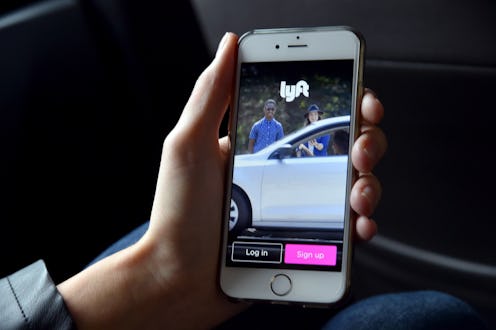
Amid increasing reports of alleged sexual assault on rideshare services, Lyft is announcing new safety measures in the app. Lyft is partnering with the anti-sexual assault nonprofit RAINN to create driver education tools that will help keep riders safe, as well as introducing new safety features in the Lyft app, including one that dials 911 for you.
"Today, we’re taking further action toward our goal of making Lyft the safest form of transportation for everyone with new initiatives to better predict if someone needs help; to provide easier access to emergency assistance; and require sexual violence prevention education with RAINN," Lyft president and co-founder John Zimmer wrote in a company blog post announcing the new features.
Lyft is unveiling three new safety features in its app. Allowing users to call 911 through the app will be coupled with a Smart Trip Check In, which will predict when someone might need assistance on a trip. In addition, Lyft drivers will be required to undergo more extensive community safety education before they can continue driving for the company.
The ability to call 911 from the app will be available to both drivers and riders, and it will inform dispatchers of all the ride information they will need to provide assistance. Current location, vehicle information, and license plate numbers will all be available to emergency services if a rider or driver activates the emergency assistance option.
Lyft says that the app will not proactively tell other individuals in the vehicle if someone uses the emergency assistance feature of the app. So, if a rider feels threatened by another rider on a shared ride, the other rider won't be notified that emergency services have been called.
And the Smart Trip Check-In will automatically ask riders through the app if everything is alright if it detects unexplained delays in your trip. For example, if the driver deviates from the route or the car comes to a stop that's not related to traffic, the feature should be able to detect that anomaly and check in with you. According to Lyft, these check-ins will roll out later this year, and will be informed by data from millions of trips.
These features are meant to allow riders to safely and discreetly communicate to emergency services when they might need help. But for drivers, Lyft is also requiring all Lyft drivers to complete additional Community Safety Education. According to Lyft, the module will be required for all new drivers, and current drivers will need to complete the module within 30 days of rollout in order to continue to drive for the company.
The changes come on the heels of a lawsuit against Lyft brought by 14 women who alleged they were sexually assaulted by Lyft drivers. The lawsuit claims that there were at least 100 cases of reported alleged sexual assaults by Lyft drivers in California between 2014 and 2016. "What the victims describe is terrifying and has no place in the Lyft community," Mary Winfield, Lyft's Head of Trust & Safety, said in a statement, CBS News reported. "Our commitment is stronger than ever, as we dedicate more resources in our continued effort to ensure our riders and drivers have the safest possible experience."
And while the education and reporting accessibility in Lyft's newest features represent more safety protections than Lyft had previously offered, even the availability of check-ins may not be enough in all cases. A rider who wants to use these features in response to sexual harassment or assault may not be able to access them immediately, or may avoid doing so in fear of retribution from the threatening party.
And these fears are particularly important in the realm of transportation. Experiences and perceptions of safety influence people's choices to use ride-share services over public transportation, according to a 2016 report published in the University of Texas Libraries. People who are more vulnerable to assault on public transit are more likely to choose a ride-service like Lyft to safely get from place to place, according to the report. And that is precisely why Lyft's new safety measures, and those still to come, matter.